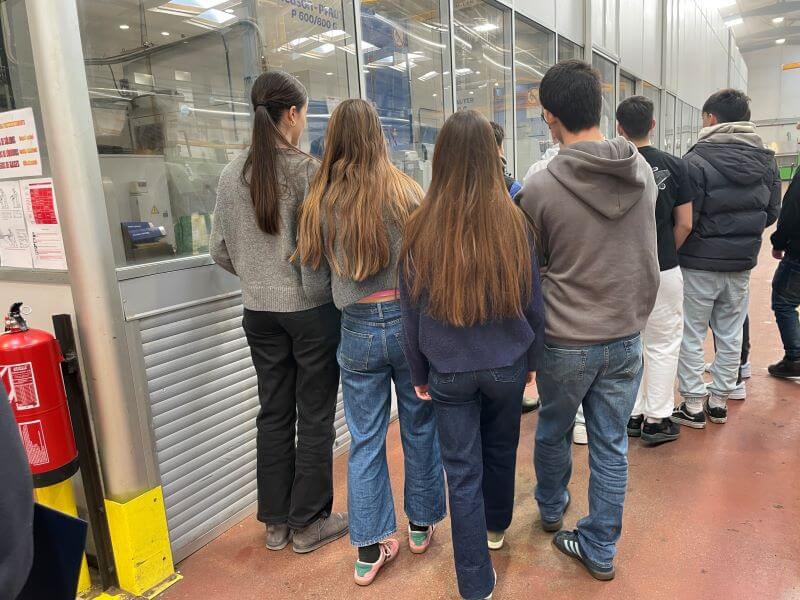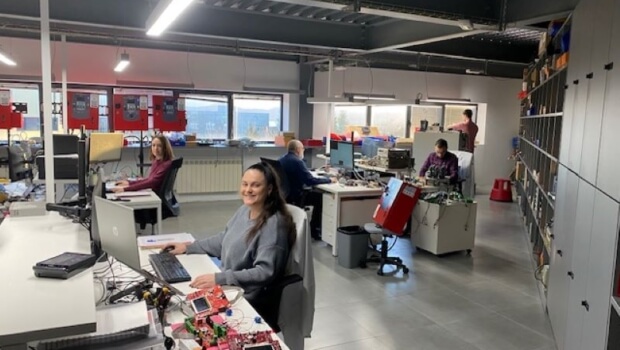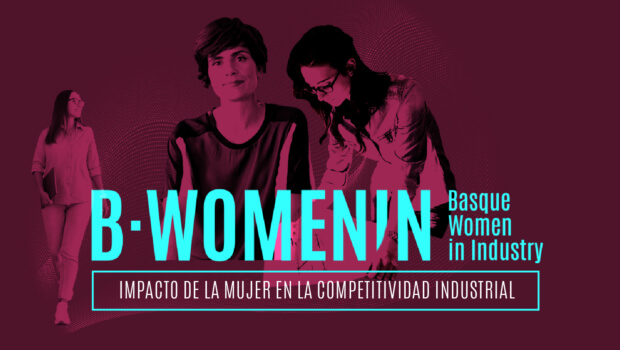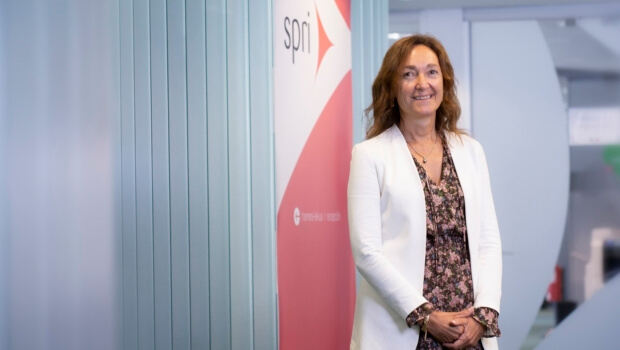Engranajes Juaristi stands out for the gender equality in its top management
Engranajes Juaristi, located in Zarautz (Gipuzkoa), has set the standard in the gear sector since it was founded in 1958. The company, which combines experience and cutting-edge technology, is known for offering premium power transmission solutions and quickly adapting to market demands. It is one of the nearly 500 companies that took part in the Impact on Women on Industrial Competitiveness study conducted by the SPRI Group in 2023.
Women account for 12.5% of the employees (compared to 21.74% of the average for the companies taking part in the study), but there is gender equality (40-60% of women and men) in management posts, on the Board and Executive Committee, which is only the case in 19% and 13% of the surveyed companies.
The company has implemented all the work-life balance measures identified in the study, and they are equally used by men and women. Ana Belén Juaristi, who has been at the head of the company for 40 years, has been a key figure in the transformation of a company that stands out for its focus on equality as a driving force for competitiveness, as set out in the SPRI report.
The report stresses that the company has achieved significant parity in management posts and on the Executive Committee; it points out that the presence of women in the general management and in the strategic areas has been part of the natural evolution of the company, driven by the awareness and commitment of the current management team.
The company is facing the challenge of finding females engaged in technical areas, particularly in Vocation Education and Training in the field of mechanics, where the majority of students are male. In order to counter this trend, Engranajes Juaristi is actively involved in promoting technical degrees among women, working with local education centres (VET and compulsory secondary education) to organise talks and visits to its facilities in order to inspire future generations. Furthermore, particular attention is paid to female candidates during the recruitment processes to ensure they can show all their worth.
Work-life balance
Engranajes Juaristi is noted for its work-life balance policies as well. Even though remote working is not an option in its sector due to the type of production, the company has implemented measures regarding flexi time and care related leave, to adapt to its employees’ needs. Ana Belén Juaristi stressed that these policies contribute to a more satisfactory work atmosphere and to greater employee loyalty. ‘We understand that we lose production hours, but we gain in terms of better work and more loyal workers’, Juaristi explained. The company assesses on an individual basis each request to adapt working hours, such as changing to night shifts for those workers who need to adjust their working day for personal reasons or to look after their children during school holidays.
This commitment to the work-life balance and to equality is a value embedded in Engranajes Juaristi’s corporate culture, and is formally set down in its Corporate Policy. In this framework, they have developed equality policies that include protocols to settle incidents and prevent gender and sexual harassment, as well as to implement non-sexist language; this shows their strong commitment to equality in the governance of the company.
The company stresses that gender equality is fundamental for competitiveness, as it provides a diversity of perspectives that enrich decision making and bolster the company’s position on the market. ‘The balance achieved by gender equality improves decision making and contributes to the company’s stability and sustainability,’ Juaristi pointed out.
Accordingly, she stressed the need for women to join industry at a faster rate, and pointed out the crucial role of the public administration in the process. Even though she recognised that the gender balance quotas are not the ideal solution, she considers them to be a necessary tool to give impetus to women holding leadership roles. ‘The path is very slow and we need legislation that facilitates women taking up decision-making positions’, Ana Belén Juaristi stressed.
The Engranajes Juaristi case shows that tradition and commitment to equality can go hand-in-hand and strengthen companies. The company hopes that its experience inspires other organisations to continue on the path to a more vibrant and equitable working environment; it is proof that commitment to equality can be a driving force for innovation and success, even in the most entrenched sectors.




